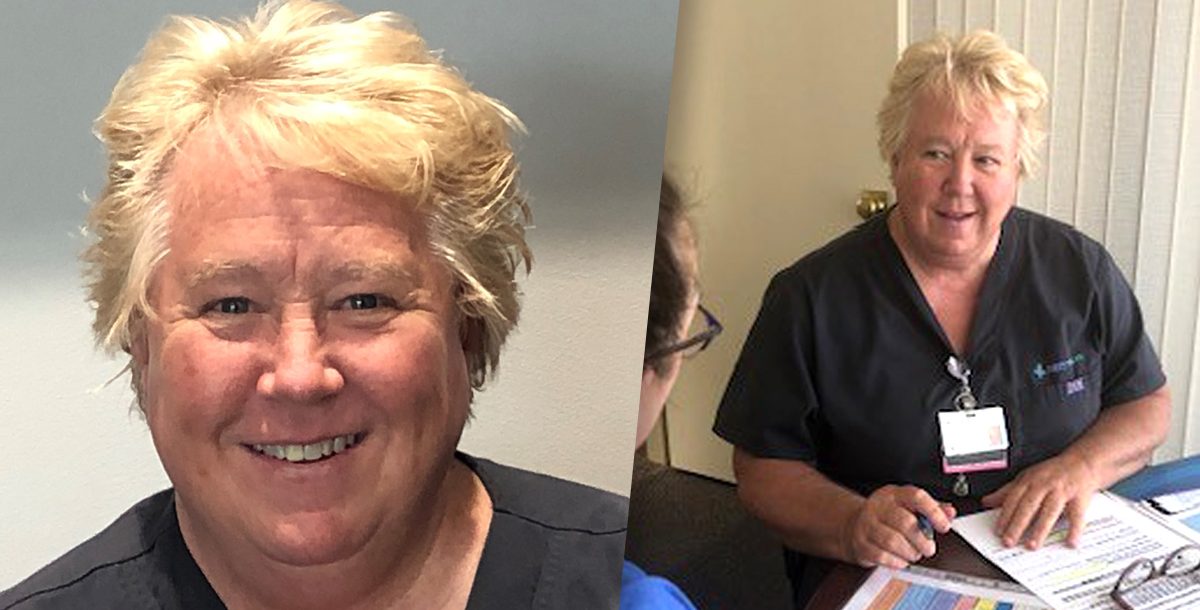Grace was visibly frustrated yet communicative about her care choices in the emergency department as the topic of advance care planning was introduced to her. As a nursing home nurse during her working years, she had seen many tests as well as procedures done for people that she, herself, didn’t want.
“No feeding tube or trac or any CPR-related procedures,” she stated.
She was willing to use ventilation if it would bring about a possible cure. But if it was needed for her long term, including an extended care facility, then absolutely not. Grace’s daughter explained that this was spelled out in her mom’s living will. However, this document was not on file in Grace’s patient’s chart.
As an advance care planning (ACP) specialist during the COVID-19 pandemic, Maggie Wannemacher encountered hundreds of patients who never saw the value in discussing their end-of-life care options with their families.
Additionally, if it was discussed, such as the case with Grace, these instructions and documents often weren’t in a patient’s chart. Consequently, the hospital was left scrambling trying to determine the patient’s level of care choices.
Maggie and other ACP specialists with our ministry helped guide our team members through these complications that result when advance care planning information isn’t accurately provided and recorded.
An advance directive, such as power of attorney, a living will and organ donation, as well as obtaining a do not resuscitate (DNR) order provide different opportunities to help you manage your medical care choices. During an ACP conversation, people are encouraged to discuss their thoughts and feelings about ventilation and CPR as well. The advance directive is vital to getting your care choices in writing and recorded with your hospital.
Our ministry not only emphasizes the importance of ACP in emergency and intensive care settings but also in ambulatory care settings. Our ACP conversations are for adults at any age or stage of health, from those who want to designate a future health care decision-maker to individuals who have encountered a serious illness or may be entering into end-stage levels of care options.
Regardless of where a patient fits in this trajectory, we want our patients to feel comfortable and non-threatened if they have never considered their options of care.
We want them to know it’s OK not to know at this time, but that we are available to help them dive deeper should they want direction or assistance in speaking with their family members. ACP specialists have found that most people have not necessarily conveyed their thoughts and feelings about end-of-life care to their families – which can cause complications in an emergent situation.
Maggie encountered a similar situation personally which resulted in her writing a book, “Let’s Talk About It Now,” on this very topic.
“I want every person to know the value of discussing their care choices,” she says “Without a clear understanding of your choices, procedures could be performed against your desire. Consequently, you may have to endure a lifestyle that you never intended.”
Most people will tend to complete an advance directive but may neglect to provide instructions to their agents about their care choices. These documents are vital so you can have someone to speak on your behalf should you be deemed incapable of decision-making. But these documents are a small part of ACP; it’s mostly about the conversation.
“It is surprising to me that many people are reluctant to discuss the one event we will all encounter in our lives,” Maggie says. “I want my care to be done the way I want, not solely put it in the hands of people – no matter how skilled they may be – who know very little about me, how I live or how I want to live. Most importantly, what is significant to me if given a limited amount of time before the end of my life? My people know. Do yours?”
Learn more about the advanced care planning services we offer at Mercy Health.






